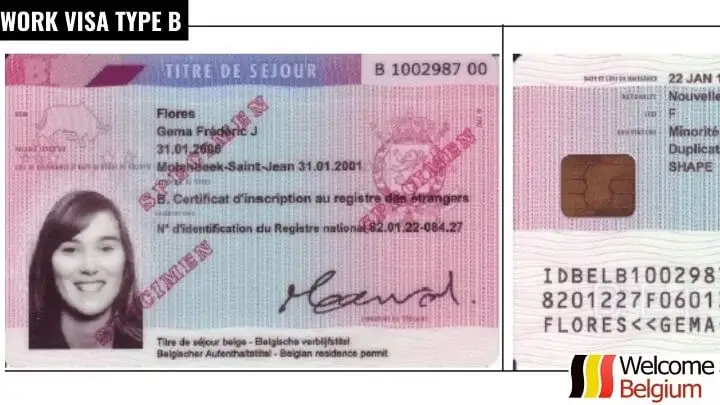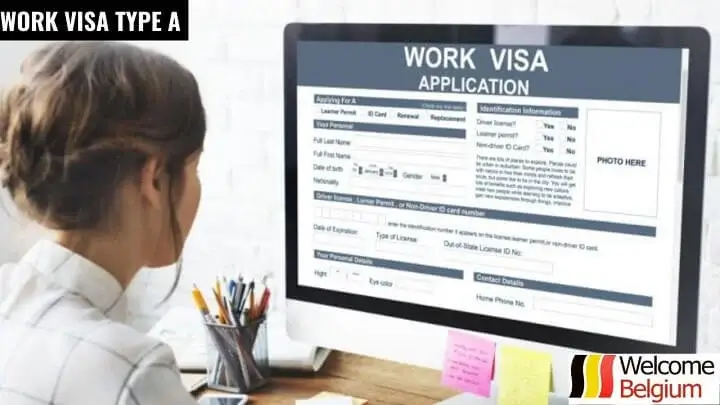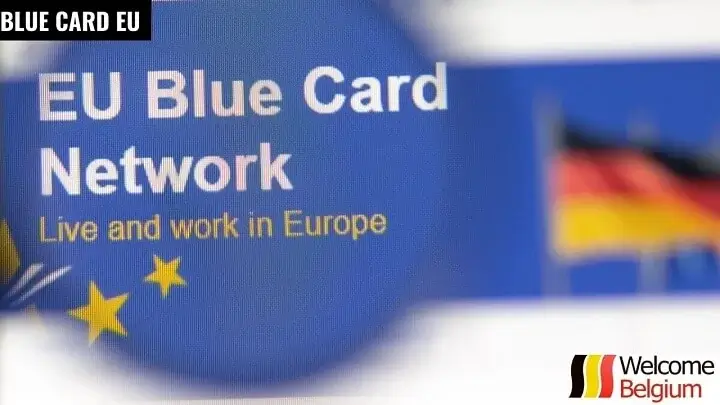Belgium remains one of the most open job markets in Europe for foreigners. The country constantly needs workers, IT specialists, healthcare staff, and just skilled people who know their craft. Immigrants can realistically find legal jobs here — with decent conditions and fair pay. This page breaks down everything you need: from types of work permits to trusted job search websites.
The Job Market in Belgium for Foreigners
The current labour market situation in Belgium favours those ready to work hard. Due to demographic shifts and the retirement of part of the local workforce, there’s a growing shortage of specialists in fields like construction, manufacturing, healthcare, and IT. Employers are increasingly turning to foreigners and immigrants, as finding qualified and motivated workers locally has become more difficult.
In-demand jobs in Belgium for immigrants:
- Electrician
Installation and maintenance of electrical systems in homes and businesses. In demand in both construction and industry. Requires a diploma and basic knowledge of French or Dutch. Salary: from €2500 gross. - Nurse
Work in hospitals, nursing homes, and private care services. Diploma recognition and language skills required. Salary: from €2800 + shift bonuses. - Truck driver (C/CE licence)
Transporting goods across Belgium and the EU. Requires EU driving license and basic logistics knowledge. Housing often included. Salary: €2200–3000. - Welder (MIG/MAG, TIG)
Metal structures, manufacturing, and construction. Constant demand, especially with valid certifications. Salary: from €2700. - Cleaner
Cleaning offices, homes, hospitals. Language and experience often not required. Flexible hours. Salary: €13–15/hour. - Software Developer (Java, Python, etc.)
High demand in IT. English often sufficient. Remote work possible. Salary: €3500–6000/month.
Jobs in Belgium are available for skilled workers in construction, healthcare staff, IT professionals, drivers, and technical specialists. For foreigners, the Belgian job market offers real opportunities, especially for those willing to learn the local languages and adapt. Major cities and industrial zones regularly post vacancies, and employment rates for immigrants remain steadily high.
Real-life example: Working below qualification but adapting to succeed
👩⚕️ From doctor to nurse — the adaptation path
Many immigrants with medical degrees face challenges getting their diplomas recognised in Belgium. For instance, a medical degree might only be partially accepted, and becoming a licensed physician can take years and fluency in one of Belgium’s official languages. In such cases, some choose to retrain as nurses — a quicker way to integrate into the healthcare system and start working in a field with constant demand.
Belgium supports foreign workers through permits, programmes, and employer-driven initiatives. The key is to be ready for paperwork and to have a clear job search strategy. Overall, Belgium remains a promising destination for immigrants seeking stable and rewarding employment.
Want to know real salary levels in Belgium? Check out our detailed salary analysis.
Work Permit Processing in Belgium for Immigrants
Getting a work permit in Belgium is a crucial step for those who want to work legally in the country. To start working, foreigners must gather the correct employment documents and obtain a work visa or work authorization. The law strictly regulates this process, so it’s important to understand the details to avoid problems. This article explains how immigrants can get a work permit in Belgium and what documents are required.
Type B – up to 1 year
Type B permit is a one-year work permit in Belgium issued for temporary work under a specific contract. Foreigners who sign an employment contract with a Belgian employer for up to one year can obtain it. This work card B allows working only for the employer specified in the application and only in the position stated in the contract.
Steps to obtain a Type B permit:
- Getting the employment contract
- Sign an official employment contract with a Belgian employer for up to 1 year.
- The contract must include the job description, duration, and payment terms.
- Preparing necessary documents
The main documents package includes:- Completed application form for the Type B permit (form depends on the region).
- Original and copy of the employment contract.
- Foreigner’s passport with copies of photo page and visa (if any).
- Passport-sized photos (usually 2).
- Documents proving qualification or education (if required for the profession).
- Certificate of no criminal record from the country of residence (if needed).
- Proof of residence in Belgium (rental contract or registration).
- Medical certificate (if required).
- Submitting the application
- The application is submitted by the employer or the foreigner in person at the local office of the regional employment department.
- Addresses and contacts depend on the region:
- Flanders: Vlaamse Dienst voor Arbeidsbemiddeling en Beroepsopleiding (VDAB) — https://www.vdab.be/
- Wallonia: Le Forem — https://www.leforem.be/
- Brussels-Capital: Bruxelles Formation — https://www.bruxellesformation.brussels/
- Contacts can be confirmed on official websites or by phone.
- Application review and waiting
- Processing time usually takes 2 to 6 weeks depending on the region and completeness of documents.
- Additional documents or clarifications may be requested if needed.
- Receiving the Type B permit
- Once approved, the applicant receives the work permit (Type B card), valid up to 1 year.
- This permit allows legal work only with the specified employer.
- Registration at the municipality
- After obtaining the permit, registration at the local town hall (Commune/Gemeente) where you live is required.
- This is mandatory for residence permit processing.
- Permit renewal
- To extend the Type B permit, apply at least 30 days before the current permit expires.
- A new contract or confirmation of continued employment and updated documents will be needed.
The Type B permit usually lasts up to 12 months but can be extended if employment conditions remain the same and there is justification to continue working. Renewal requires submitting the application before the current permit expires, including an updated contract or proof of ongoing employment.
Note that the Type B permit has restrictions: it does not allow changing employers without reapplying, and work must strictly match the conditions stated in the contract. It is a temporary option for those coming to Belgium for a limited time and not immediately seeking a longer-term status.
Important:
Type B permit is a temporary one-year work permit in Belgium, issued based on an employment contract, with renewal options, and limited to working only for a specific employer.
Type A Work Permit – No Expiration Date
A Type A work permit in Belgium allows you to work indefinitely, with no time restrictions. It’s given to foreign nationals who’ve proven steady, long-term employment in the country. To qualify, you need to have worked in Belgium for at least three consecutive years under a Type B permit (or other temporary permits), showing that you’re reliable and experienced in the job market.
Looking for a job in Brussels? Check this guide on how to find work in the Belgian capital.
Unlike temporary permits, the Type A doesn’t tie you to a single employer. You’re free to change jobs without applying for a new permit, giving you way more flexibility and long-term stability.
Here’s how the process works step-by-step:
- Check the Requirements
- You must have worked in Belgium for at least 3 years non-stop under a Type B (or another temporary) permit.
- You must have legal residence status in Belgium.
- Prepare the Documents
You’ll need:- Passport or ID (copy and original)
- Type B work permit(s) for the past 3 years
- Work contracts or employer statements proving your work history
- Registration certificate from your local municipality (Attestation d’inscription / Inschrijvingsbewijs)
- Application form for Type A permit (download it from your region’s website)
- Health certificate (if requested)
- Any additional documents requested by the regional employment office
- Submit Your Application
Where to apply, depending on your region: - Wait for Processing
- The processing time usually takes 3 to 8 weeks, depending on your region and how busy the services are.
- If they ask for extra documents, it might take longer.
- Receive Your Permit
- Once approved, you’ll get your Type A work permit.
- Don’t forget to register it at your local municipality.
- You’ll be allowed to work without time limits or employer restrictions.
- Maintain the Status
- Type A doesn’t need to be renewed regularly, but you must keep your legal residence and follow Belgian laws.
- Changing jobs? No need for a new permit.
Why Go for a Type A?
This permit gives you freedom. You don’t need to reapply every year or stick with one company. It’s perfect if you plan to stay in Belgium for the long haul and want to avoid red tape.
Real Talk Example
My buddy Andriy from Antwerp worked three straight years with a Type B permit. But when he applied for Type A, the whole thing took nearly six months in 2023 — bureaucracy, slow checks, and trouble proving continuous employment after switching jobs in Brussels. Still, he pushed through and got his permanent permit in early 2024.
Just make sure your paperwork proves your work history and legal stay in Belgium. Processing can take a few weeks or even a couple of months. But once it’s done, the Type A is your golden ticket to long-term job freedom in Belgium.
Type C – Temporary Employment Permit
A type C work permit is intended for those planning to work in Belgium on a temporary basis. It is most commonly issued to refugees, students, and seasonal workers. The validity period of this permit is usually tied to the duration of the employment contract or studies and generally does not exceed 6–12 months.
Here is a detailed list of the steps to obtain a type C work permit in Belgium:
- Document preparation:
- Passport or another valid identity document
- Visa (if required for entry into Belgium)
- Proof of status (e.g., certificate confirming refugee or student status)
- Employment contract or invitation from an employer
- Completed type C permit application form
- Passport-size photographs
- Medical certificate (if required)
- Submitting the application:
- Apply through the local employment office (e.g., VDAB for Flanders, Forem for Wallonia, Actiris for Brussels)
- In some cases, applications must be submitted through the local municipality (city or commune)
- Online submission portals may be available on the official websites
- Contacts and addresses:
- VDAB (Flanders): vdab.be, phone +32 78 15 62 11
- Forem (Wallonia): leforem.be, phone +32 71 27 25 00
- Actiris (Brussels): actiris.brussels, phone +32 2 557 70 00
- Municipalities: contact information varies by city and is usually available on the city’s official website
- Waiting for a decision:
- Processing time usually ranges from 2 to 6 weeks
- Additional documents or clarifications may be requested if needed
- Receiving the permit:
- Once approved, the permit can be collected in person or received by post (depending on the region)
- A type C permit is generally issued for a period of 3 to 12 months
- Starting work:
- You can officially begin employment once the permit is received
- It’s important to comply with the restrictions on the length and schedule of work
If you have any questions, it’s best to contact your regional employment agency or local municipality for assistance and guidance with the application process.
The type C permit stands out as it is meant for temporary employment with a limited validity period. Seasonal workers, students, and refugees most often receive this permit as it provides a legal way to work for a short duration. Unlike other types of permits, type C is not suitable for long-term employment and is typically granted for up to 6–12 months.
Important:
Always check the expiration dates of your documents and don’t delay submitting your type C permit application to avoid setbacks in employment.
Additionally, the type C permit limits the number of working hours, especially for students, and requires that the job aligns with the temporary purpose of stay. This solution enables temporary workers to be legally employed in Belgium without committing to long-term contracts or obligations.
Blue Card EU
The EU Blue Card is a special residence and work permit for highly qualified non-EU nationals who want to live and work in Belgium. It allows employment under favorable conditions and simplifies the process of obtaining a residence permit and integrating into the country.
The Blue Card is designed for individuals with a higher education degree or significant professional experience, along with a job contract offering a salary above a set threshold. Key benefits include long-term residence rights, the ability to move to other EU countries, and a simplified path to permanent residency and citizenship.
Here’s a detailed step-by-step guide to applying for a Blue Card EU in Belgium:
- Document preparation:
- Passport or valid ID
- A current work contract or signed job offer from a Belgian employer (stating a salary above the minimum threshold)
- University diploma or equivalent higher education certificate
- Proof of qualifications (if required)
- Completed Blue Card application form
- Passport-sized photos
- Health insurance (if required)
- Certificate of good conduct or police clearance (sometimes required)
- Submitting your application:
- Contact the local immigration office (for example, in Brussels: Dienst Vreemdelingenzaken / Office des Étrangers)
- Addresses and contact details:
— Brussels: Avenue Georges Rodenbach 20, 1070 Brussels, +32 2 557 76 11, website: economie.fgov.be
— Offices in other regions can be found via the official website
- Application review period:
- Processing time is typically between 1 and 3 months
- Additional document requests may arise, extending the waiting time
- Receiving the decision and your card:
- Once approved, you must collect the Blue Card in person
- The card is issued with a specific validity period (usually up to 4 years, renewable)
- Municipal registration:
- After receiving your Blue Card, you must register at your local municipality (commune)
- During registration, you’ll receive a residence permit marked with “Blue Card”
- Renewal of the Blue Card:
- Renewal applications must be submitted in advance—preferably 2 to 3 months before the card expires
- To renew, you’ll need to provide proof of continued employment and meet the necessary conditions
From application to receiving your Blue Card, the process usually takes between 1 and 3 months. However, in some cases, it can stretch to 6 months due to bureaucratic issues, document checks, or overloaded offices. That’s why it’s recommended to apply early and prepare your paperwork thoroughly to avoid delays and complications.
You can also check this article to learn how to find a job in Belgium for English speakers.
To get a Blue Card, you must provide a valid employment contract, qualification documents, health insurance, and proof that your salary meets the minimum threshold. IT professionals, engineers, doctors, and other skilled workers often choose the Blue Card as the most efficient way to work legally in Belgium.
Example:
Let me share my own experience—I applied for the Blue Card EU in Brussels in early 2024. At first, I thought it would be quick and easy, but bureaucracy dragged it out for nearly six months because of minor paperwork and diploma verifications. I had to go back and forth between different offices several times to get things sorted, but once I got the card—I realized it was worth the hassle.
This visa type opens up solid career opportunities and makes administrative procedures far easier than with standard work permits.
Comparison of Work Permits in Belgium
Work permits in Belgium come in different types — each fits specific tasks and conditions. To understand which permit you need, it’s important to know the differences in terms of duration, target audience, and restrictions. Below is a table with key features of all main permit types to help you navigate and pick the right option.
| Permit Type | Duration | Suitable For | Main Restrictions | Features |
| Type B | Up to 1 year | Temporary workers, contract jobs | Only for a specific contract | Renewable, temporary |
| Type A | No time limit | Those who worked long under Type B | No employer restrictions | Permanent job, more freedom |
| Type C | Temporary | Refugees, students, seasonal jobs | Restrictions by activity type | Short-term permit |
| Blue Card EU | Up to 4 years (renewable) | Highly skilled specialists | High salary and qualification requirements | Simplified path to residence permits |
Each permit serves a specific purpose and meets the requirements of different worker categories. Knowing the features and restrictions helps avoid mistakes in application and speeds up legalization in Belgium. If you want to boost your job path, choose the right permit type and remember to renew your documents on time.
Illegal Work in Belgium for Immigrants
Working without official permission in Belgium is always risky. For immigrants, illegal work can lead to serious consequences, ranging from hefty fines to deportation with a ban on re-entry. Employers who hire undocumented workers also face penalties and possible criminal charges.
Consequences of Illegal Work in Belgium:
- Fines for the Worker
Working without a permit is regulated by Article 458 of the Belgian Code of Administrative Offenses. Fines can range from €200 to €10,000. - Fines for the Employer
Employers who use illegal labor face fines under the Labor Inspection Act (Labor Code, Article 64). These fines can reach up to €50,000. - Criminal Liability
Repeated violations can lead to criminal charges, including imprisonment for up to one year, according to Article 72 of the Employment Act. - Deportation and Entry Ban
Foreign nationals caught working illegally may be deported and banned from re-entering Belgium for up to 5 years, as set by the Law on Migration and Residence of Foreigners. - No Social Benefits
Illegal work does not provide access to social benefits, health insurance, or pension schemes, as regulated by general social legislation. - Risk of Exploitation and Unsafe Work Conditions
Working without proper documentation means losing labor law protections, often resulting in fraud and hazardous conditions.
Belgium strictly monitors its labor market. Police and labor inspectors regularly check businesses and employees. If caught working illegally, workers face fines, temporary detention, and expulsion. Employers risk fines reaching tens of thousands of euros, plus possible business closure.
Example:
Andriy from Ukraine worked without a permit in Brussels. He was caught, fined, and deported with a 3-year entry ban. Such penalties also complicate travel to other EU countries.
Besides legal risks, illegal work undermines workers’ rights — no social benefits, sick leave, vacation, or fair pay. The black labor market often involves exploitation and unfair terms. In the end, both workers and employers lose out.
Learn more about alternatives — remote work opportunities in Belgium.
About Belgium’s Labor Legislation
Belgium’s Labor Code regulates the main aspects of employment relationships, including working hours, contracts, wages, and vacations. The standard workweek is usually 38 hours, with both fixed and flexible schedules possible. Employment contracts can be either fixed-term or indefinite, clearly outlining payment terms and the responsibilities of both parties.
Here is a list of the main labor laws in Belgium:
- Law No. 16 of August 4, 1996 — regulates employment contracts and hiring conditions.
- Law No. 38 of March 16, 1971 — sets the minimum wage and payment rules.
- Law No. 97 of June 28, 1973 — defines working hours and rest periods.
- Law No. 89 of March 16, 1971 — governs vacations and public holidays.
- Royal Decree No. 44 of January 24, 1981 — on workplace safety and health protection.
- Law No. 92 of July 3, 1978 — covers administrative and criminal liability for labor law violations.
The minimum wage in Belgium is legally set and regularly updated to maintain a decent standard of living. Employees have the right to at least 20 paid working days of vacation per year, along with additional weekends and public holidays. All these conditions are protected by state regulations and subject to official oversight.
💼 Comparison of working conditions for Belgians and immigrants:
| Parameter | Belgians | Immigrants |
| Minimum Wage | €2,070.48 per month (since Feb 1, 2025) | Same minimum wage with legal employment |
| Working Hours | Standard 38 hours per week | Same, but sometimes longer due to seasonal/temp jobs |
| Vacation | 20 paid working days per year | Equal rights, but proof can sometimes be difficult |
| Employment Contract | CDI/CDD (indefinite/fixed term) | Depends on type of work permit (e.g., types B, A, C, Blue Card) |
| Social Benefits | Full package: health insurance, pension, sick leave, maternity leave, etc. | Same rights after legalization, but processing may take time |
| Protection Against Discrimination | Full legal protection | Same legal protection, but practical difficulties may occur |
| Career Advancement | Greater mobility and promotion chances | Depends on status and level of integration |
Employers are required to provide safe working conditions, pay salaries on time, and comply with labor laws. Employees, in turn, must perform their duties conscientiously and follow company rules. Knowing one’s labor rights and obligations helps immigrants adapt faster and protect their interests.
Important:
Don’t risk illegal work — in Belgium, it can quickly lead to deportation and an EU entry ban.
How Immigrants Can Find a Job in Belgium
Looking for a job in Belgium as an immigrant might not be as hard as it seems at first, especially if you use all available channels. The most obvious way is to use online job platforms. Popular sites include Indeed Belgium, LinkedIn, StepStone, VDAB (for Flanders), Forem (for Wallonia), and Actiris (for Brussels). These sites allow you to filter job offers by language, experience, and contract type.
🏛 Public Employment Services:
- VDAB (Vlaamse Dienst voor Arbeidsbemiddeling en Beroepsopleiding)
- Region: Flanders
- Description: The Flemish employment and vocational training service offers job listings, courses, counseling, and digital tools for job seekers.
- Address: De l’Empereur 11, 1000 Brussels
- Phone: +32 (0)2 506 12 11
- Website: vdab.be
- Cost: Free
- Reviews: Users highlight a wide range of vacancies and quality training programs.
- Le Forem
- Region: Wallonia
- Description: The Walloon employment and training service supports job search and training.
- Address: Rue des Wallons 1, 4000 Liège
- Phone: +32 (0)4 230 11 11
- Website: leforem.be
- Cost: Free
- Reviews: Users appreciate the personalized approach and accessible information.
- Actiris
- Region: Brussels
- Description: The Brussels regional employment service provides job offers, counseling, and training.
- Address: Avenue de l’Astronomie 14, 1210 Brussels
- Phone: +32 (0)2 505 79 11
- Website: actiris.be
- Cost: Free
- Reviews: Users note effective support and a good variety of offers.
🏢 Private Employment Agencies:
4. Manpower Belgium
- Description: An international staffing agency offering temporary and permanent jobs across various sectors.
- Head Office: Avenue des Communautés 110, 1200 Brussels
- Phone: +32 (0)2 639 10 70
- Website: manpower.be
- Cost: Free for job seekers
- Reviews: Users praise professionalism and a broad selection of vacancies.
- Randstad Belgium
- Description: Recruitment agency specializing in temporary and permanent positions across multiple industries.
- Offices:
- Leuven: Kolonel Begaultlaan 1a/31, 3012 Leuven
- Ghent: Pauline van Pottelsberghelaan 12, 9051 Sint-Denijs-Westrem
- Hasselt: Kempische Steenweg 297/6, 3500 Hasselt
- Phones:
- Leuven: +32 (0)16 65 20 16
- Ghent: +32 (0)9 395 94 49
- Hasselt: +32 (0)11 35 07 77
- Website: randstad.be
- Cost: Free for job seekers
- Reviews: Users value fast response and a wide range of offers.
- Accent Jobs
- Description: Agency specializing in jobs in construction, logistics, administration, and more.
- Head Office: Beversesteenweg 576, 8800 Roeselare
- Phone: +32 (0)51 460 500
- Website: accentjobs.be
- Cost: Free for job seekers
- Reviews: Users appreciate personalized support throughout the hiring process.
🤝 Nonprofit Organizations and Initiatives:
7. Maisons de l’Emploi
- Description: Local employment centers offering advice, internet access, help with CV writing, and other services for job seekers.
- Region: Mainly Wallonia and Brussels
- Managed by: Forem, Actiris, and local authorities
- Reviews: Users value accessibility and variety of services.
- Synerjob
- Description: A federation uniting regional employment services (VDAB, Forem, Actiris, ADG) to coordinate and share best practices.
- Website: synerjob.be
- Cost: Free
- Reviews: Users note improved coordination between employment services.
Besides online job searching, immigrants can contact employment agencies like Randstad, Manpower, or Accent Jobs, which cover various fields and often assist those looking for their first job in Belgium. Immigrants should also consider direct applications by sending CVs to company websites or visiting restaurants, shops, warehouses in person, especially for jobs without intermediaries. Social networks and local Facebook or Telegram communities also frequently post job openings.
Tip:
Prepare your CV in English, French, or Dutch (depending on the region), and be sure to state clearly that you are legally allowed to work — this will help avoid many unnecessary questions.
Overview of In-Demand Jobs and Salaries
Belgium consistently faces a shortage of qualified workers in technical fields, healthcare, and IT. There is also steady demand in construction, logistics, education, and elderly care. Immigrants with the right skills and experience often find jobs faster, especially if they speak at least one of the country’s official languages. Additionally, having a diploma recognized in the EU makes it much easier to get hired in these sectors.
Below is a list of the most sought-after professions for 2025 with approximate gross monthly salaries:
| Profession | Average Salary (Gross) | Comments |
| Nurse | €3,000–€3,800 | Especially needed in nursing homes and hospitals, staff shortages nationwide. |
| Truck Driver | €2,500–€3,300 | In demand for international and regional transport. |
| Electrician | €3,200–€4,000 | Sought after in Flanders and Brussels, often hired via agencies. |
| Welder | €3,000–€4,200 | Needed in ports and manufacturing, especially with experience. |
| Programmer (Full Stack/DevOps) | €4,000–€5,500 | Steady high demand, particularly in Antwerp, Ghent, and Brussels. |
| Caregiver | €2,600–€3,200 | Often recruited through social services, migrants are trusted. |
| Teacher (Math, Physics) | €3,200–€3,800 | Shortage of teachers in secondary schools. |
| Mechanic | €2,700–€3,400 | Needed in auto services, logistics centers, and factories. |
| Mason, Plasterer | €3,000–€4,000 | Especially required in big cities and new neighborhoods. |
Many of these jobs are valued for stability, permanent contracts, and social benefits. Employers sometimes assist with housing or paperwork. It’s important to note that these figures are gross salaries—net pay will be about 20–25% less due to taxes and social contributions.
Interesting fact:
In 2024, Belgium’s Ministry of Labor officially added over 100 professions to its shortage occupation list. This simplifies work permit and residence permit procedures for immigrants.
Step-by-Step Employment Plan
Finding a job in Belgium as an immigrant is doable if you clearly understand the steps involved. From the first job application to starting the new position, it can take anywhere from a couple of weeks to several months — it all depends on your preparation and chosen profession.
Here’s a detailed step-by-step guide to getting a job in Belgium:
- Identify your profession and check if it’s on Belgium’s list of shortage occupations.
- Prepare your CV following the European format (Europass) and write a cover letter.
- Translate your diplomas and qualification certificates into one of the official languages (French, Dutch, or German).
- Register on job platforms: Le Forem, VDAB, Actiris, Indeed, LinkedIn.
- Contact public employment services or accredited private agencies.
- Actively send out your CV, respond to job postings, and reach out directly to employers.
- Attend interviews online or in person.
- After receiving a contract, apply for the appropriate work permit.
- At the same time, apply for a visa if you are outside the EU.
- Wait for the permit, get your visa, and come to Belgium.
- After arrival, register at your local commune and get your resident card.
- Start working and make sure to arrange social security and open a bank account.
Following this plan helps speed up the hiring process and reduces stress. The key is not to delay with paperwork and stay proactive: the wider your network and number of applications, the better your chances of finding a job you like.
Example:
In 2023, a friend of mine from Kharkiv moved to Ghent and found a job as a welder through VDAB. He prepared his CV in English and French in advance, obtained a type B work permit, passed an online interview, and signed a one-year contract. Just two months after moving, he officially started working and after a year applied for a type A permit.
Immigrant Reviews from Those Already Working in Belgium
Many immigrants who found jobs in Belgium share their experiences, helping others understand what to expect. These reviews cover various fields—from physical labor to highly skilled work in IT and healthcare.
- Alexander, 42, Ukraine, construction worker in Liège:
“At first, the language was tough, but on construction sites it’s not critical. The main thing—I got a type B permit, work officially, salary is stable, sometimes even higher than promised in the contract.” - Leila, 35, Georgia, nurse in Brussels:
“I completed diploma recognition and language courses, found a job through an agency. Everything is under an employment contract, great conditions, 38 hours per week and paid vacation. The key is not to give up after initial refusals.” - Robert, 28, Armenia, IT specialist in Antwerp:
“I got a Blue Card after an offer from a Belgian company. Everything was arranged in 3 months. The living standard is great, taxes are high, but healthcare and transport are top-notch. I recommend IT specialists to consider Belgium.”
Work as seen through a foreigner’s eyes can be different, but with proper preparation and a legal approach, it becomes a great chance for a stable life in Europe.








Pingback: Working in Belgium as a Foreigner: What You Need to Know — Welcome to Belgium